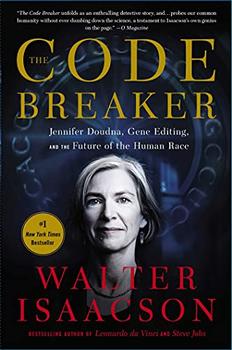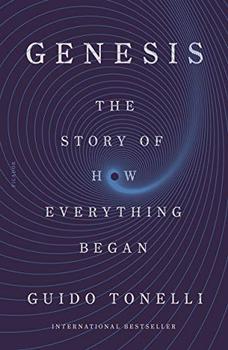Summary | Excerpt | Reviews | Beyond the book | Read-Alikes | Genres & Themes | Author Bio

Decoding Four Billion Years of Life, from Ancient Fossils to DNA
by Neil ShubinLike the science covered in the book, Neil Shubin's Some Assembly Required is fascinating. The book is lucid, precise, and paced like a mystery thriller. Unlike many good "hard science" nonfiction books, you'll never find yourself asking, "Is this chapter almost over?"
Shubin has experience writing well-reviewed popular science books, and his prowess is on full display here. One has the feeling that the entire book was methodically outlined before being written. While the material itself is technical and dense, it is totally comprehensible. No dictionary required — new scientific terms are colloquially explained as they arise. In fact, Shubin even displays a sarcastic sense of humor about how daft scientific esotericism sounds in hindsight:
Haeckel, always quotable, coined a phrase linking the two that was to linger like an advertising jingle for many who studied biology in the twentieth century: 'Ontogeny [development] recapitulates phylogeny [evolutionary history].'
I came into this book not knowing anything about genetics. I had an inkling (I thought) about how evolution works, but nothing about DNA, amino acids or chromosomes. In 230 pages, Some Assembly Required not only informed me about the building blocks underlying genetic evolution, it also showed me everything I thought I knew was probably wrong. Beyond that, though, it fascinated me. I now have a rough understanding of how to create centipedes with legs going the wrong direction.
The book is divided into eight chapters that outline different epochs, or major jumps, in our understanding of how life evolves on this planet. Beginning with Darwin and early debates over evolution, the first chapter lays out the thesis of Shubin's entire project: evolution is guided not by big drastic transformations, but "by a change of function." Evolution occurs when an organism repurposes old functions for new ones. Salamanders are able to pull this feat off within one generation. If you take two salamanders with gills and webbed feet, breed them, and put them in a storage container without water, their offspring will be born and develop without gills and with feet designed for land. They will look nothing like their amphibious parents. The existing DNA is repurposed during the offspring's development so that they have traits more suitable for survival in the current habitat. Point established, each subsequent chapter hops to a new stage of research about the building blocks of life, covering new tracks of experimentation.
The chapters are all extremely informative, highly entertaining, and laser-focused on bringing us to where scientists are today. Indeed, if there is any critique to be had, and this really would be a stretch, it's that Some Assembly Required is almost unnervingly organized — particularly compared to the chaotic nature of the DNA sleuthing it describes. Each chapter is structured episodically, almost like a screenplay with three acts. First, Shubin begins with a humorous or exciting slice of life vignette about a scientist from the past. From there, he launches into an important discovery the person made aiding our knowledge about the building blocks of life. This is followed by the science and further understanding of a particular concept in evolution and the composition of animal genomes. Each chapter ends with a perfect segue into the next, revealing a new mystery to be solved.
The repetition, and the use of slice-of-life storytelling from various scientists' careers, quickly suck you into the book. There were times I caught myself unable to stop reading, even though in general I'm not at all interested in worm DNA. Like a good television series, the pacing never flinches. Each chapter leaves you wondering what will come next. I was disappointed when it ended; I was left wanting more.
There is something for everyone here — scientific history, the science of evolution, and information that can help us speculate how life will evolve in the future (with or without human tinkering). Neil Shubin has written a masterful book, and I feel both lucky and more intelligent for having read it.
![]() This review was originally published in The BookBrowse Review in May 2020, and has been updated for the
September 2021 edition.
Click here to go to this issue.
This review was originally published in The BookBrowse Review in May 2020, and has been updated for the
September 2021 edition.
Click here to go to this issue.

If you liked Some Assembly Required, try these:

by Walter Isaacson
Published 2022
Winner of the 2021 BookBrowse Nonfiction Award
The bestselling author of Leonardo da Vinci and Steve Jobs returns with a gripping account of how Nobel Prize winner Jennifer Doudna and her colleagues launched a revolution that will allow us to cure diseases, fend off viruses, and have healthier babies.

by Guido Tonelli
Published 2022
A breakout bestseller in Italy, now available for American readers for the first time, Genesis: The Story of How Everything Began is a short, humanistic tour of the origins of the universe, earth, and life - drawing on the latest discoveries in physics to explain the seven most significant moments in the creation of the cosmos.
Your guide toexceptional books
BookBrowse seeks out and recommends the best in contemporary fiction and nonfiction—books that not only engage and entertain but also deepen our understanding of ourselves and the world around us.